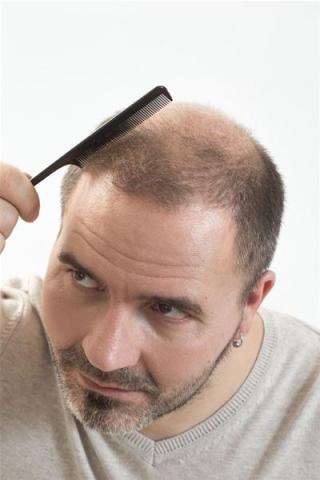On a daily basis we are bombarded with ads for hair loss treatments that use misleading advertising to sell their products. These campaigns persuasive thousands of hair loss sufferers to spend nearly one billion dollars each year on ineffective hair loss treatments.
Most questionable hair loss products use similar, misleading marketing techniques.
Misleading Marketing
Some hair loss products lead you to believe that they can stop hair loss by parsing their words. They can't come out and claim to regrow hair or stop hair loss, so they advertise vague claims like “thicker, fuller hair”.
This is a ‘cosmetic' claim that any product can make. Be advised that cosmetic claims cannot restore hair or grow hair because they are not proven to do so.
False Testimonials
With the anonymous nature of Internet postings, people posing as users can mislead others with false testimonials. Often positive reviews are produced by people compensated to post these messages.
Since there is no real regulation of online postings, consumers are advised to take testimonials with skepticism.
Phony Photos
Most product advertising that claims to produce dramatic results will show a photo of a balding person with thin hair next to a photo of the same person with thicker hair. Do these photos lie? Well, yes they do.
You can prove it yourself. Take a photo of a head with thinning hair using a flash camera and then photograph the same head without the flash. The photo with the flash will look like a bald head and the photo without the flash will look like more hair.
If the products or services are really legitimate, there should be dozens of photos, if not hundreds or thousands.
Many hair loss products claim to be able to restore hair through the use of drugs, herbal lotions or other exotic applications like lights, lasers or electrical fields. While many of these products have been around for years, there is little evidence that they can restore hair.

Avoiding scams to find hair loss treatments that actually work.
If a person is genetically prone to hair loss and balding, FDA proven hair loss treatments may help slow the process if they are used early and often. If you are like many and have already lost more hair than you're happy with, there is only one option to restoring your own natural hair: hair transplants. Hair transplants have become an art in the restoration of natural hair which is genetically resistant to the causes of balding.
Like any surgical solution, your success depends upon the quality of the doctor you choose. Doctors who are successful in restoring a natural looking head of hair are carefully reviewed by the Coalition of Hair Restoration Physicians for membership in this exclusive organization. They must allow access to past patients, confirm their training and provide photos and videos of their patients.
While hair transplants are not possible for everyone, they are now more natural and affordable than ever before.
To see hundreds of real photos done by the world's top hair loss specialists who are members of the Coalition of Hair Restoration Physicians, click here.
Verify treatment claims and get treatment advice.
We encourage you to take your time and explore all your options before committing to any hair loss treatment.
Visit our popular discussion forum and compare notes with other hair loss sufferers about what does or does not work.
Why aren’t hair loss scams illegal?
One would imagine that the FDA would stop the promotion and distribution of questionable products.
Unfortunately, they can't. Since the FDA approved minoxidil and finasteride as effective in stopping hair loss, any inclusion of these products in any form enables marketing companies to make hair loss claims.
This is why some hair loss treatments, which contain minoxidil, promote themselves as “FDA approved” even though only the containing ingredient minoxidil is the only substance tested and approved by the FDA.








